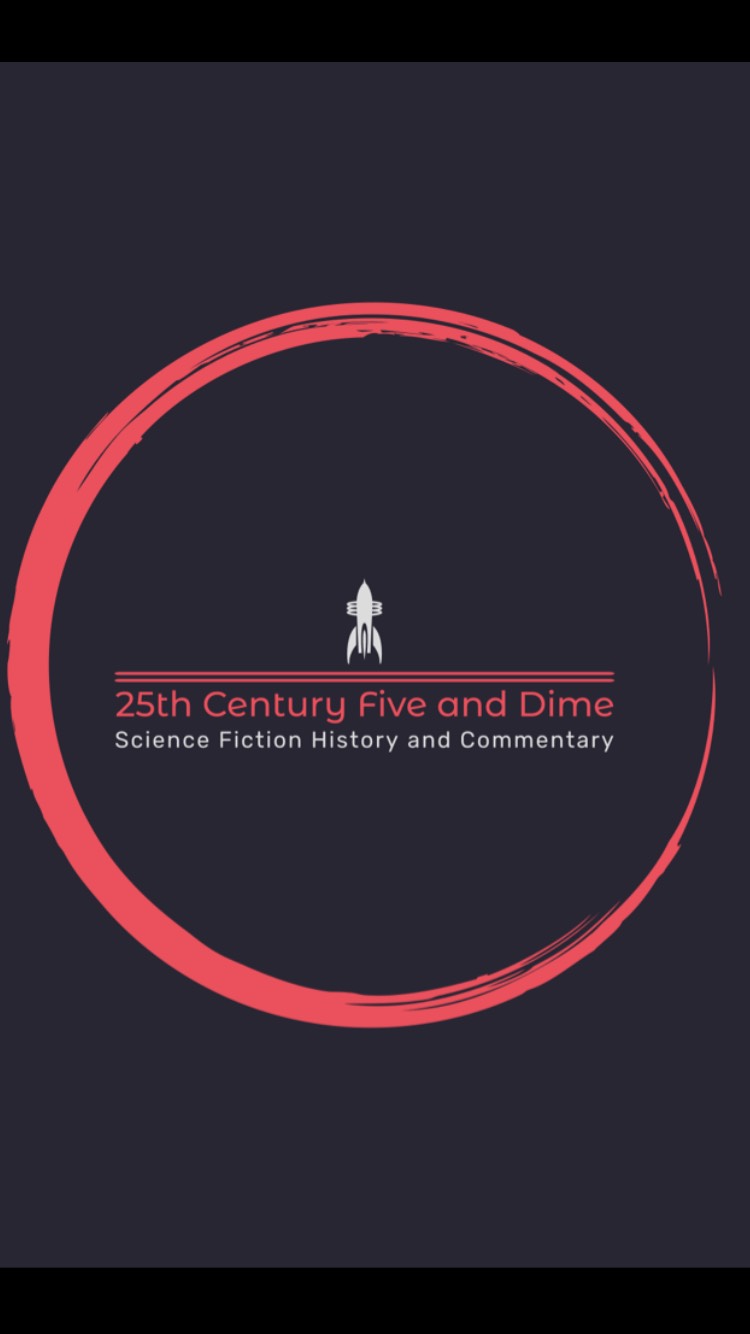 Editorial Note: A previous version of this post was published to the website with editorial markups. This was not the author’s fault. Those markups have been removed in this version.
Editorial Note: A previous version of this post was published to the website with editorial markups. This was not the author’s fault. Those markups have been removed in this version.
I don’t often get writer’s block when working on fiction, but it has happened a few times. Sometimes I will spin my chair around and look at my library for inspiration. Other times I will go to bookstores, normally used ones, this trick doesn’t work at a strictly modern bookseller. Something happens in my brain when you see all the spines together. Philip K. Dick and Octavia Butler, HP Lovecraft, Catherine Lucille Moore, and Maurice Broaddus…across the generations the conversation that Hugo Gernsback named Science Fiction is one of ideas, stories, and personal expression. One generation inspires the next, sometimes it is like a tennis match with the lobs back and forth. I find it inspiring.
The Good, the bad, and the ugly of this conversation include everything from HP Lovecraft’s racist fear of the other and Octavia Butler’s exploration of the trauma of Racism. Sometimes the conversation is indirect like Simak’s City and Asimov’s Foundation. Sometimes it is a response like Victor Lavalle’s The Ballad of Black Tom, to the Horror at Red Hook.
In this column, I want to look at three science fiction novels written in different decades by three authors that I consider a thematic trilogy. The authors of the second and third parts acknowledge the influence of the previous to various degrees. That said they are only a trilogy because I say they are.
The Games Machine trilogy
The World of Null-A by AE Van Vogt (the August 1945 to October 1945 issues of Astounding) Published as a complete novel in 1948. All quotes are attributed to the Orb 2002 edition.

Solar Lottery by Philip K. Dick, (Ace Double 1955 With Leigh Brackett’s The Big Jump) All quotes are attributed to the 2012 Mariner edition.

The Gamesman by Barry N. Malzberg (Paperback 1975)

The status of these books as a trilogy is not something that I am pulling out of my…uh thin air. AE Van Vogt was one of the most influential SF authors of the 40s, very clearly an influence on a young Philip K. Dick. PKD’s 1955 classic Solar Lottery was so influenced by Null-A that he both admitted and denied it over the years.
Malzberg twenty years later dedicated his 1975 novel The Gamesman to the Bay Area author. This inspired a last night conversation on the phone between the two that Barry recounted during both interviews we did on the Dickheads podcast.
Solar Lottery doesn’t have a dedication but in a 1974 interview, Phil laid it out. “I started reading SF when I was about twelve and I read all I could, so any author who was writing about that time, I read. But there’s no doubt who got me off originally and that was A.E. van Vogt. There was in Van Vogt’s writing a mysterious quality, and this was especially true in The World of Null-A. All the parts of that book did not add up; all the ingredients did not make a coherency. Now some people are put off by that. They think that’s sloppy and wrong, but the thing that fascinated me so much was that this resembled reality more than anybody else’s writing inside or outside science fiction.”
A year before the release of Solar Lottery Phil met Van Vogt at the 1954 Worldcon,. wearing the first polyester suit he had ever seen. The Canadian legend told young Phil, who at the time had only published a boatload of short stories, something to the effect of “You ain’t gettin’ nowhere writing short stories kid.” I am sure he didn’t sound like Jimmy Cagney or call him kid but I like to believe that he said it that way.
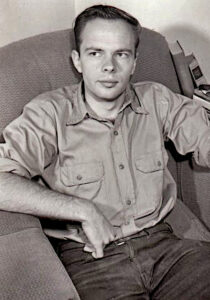

Philip K Dick 1960, AE Van Vogt 1940s
So when Phil set out to write a novel, he emulated his hero and wrote a novel so similar in theme and structure that the rip-off debate is a valid one to have. Written a decade later, Solar Lottery is a massive leap in the strength of style, world-building, and execution, and that progression is worth study alone. If you never read Van Vogt, Solar Lottery comes off as a scattered early work, but compared to the novel that was its’ chief influence, it is far more accomplished. Famed author Thomas M. Disch in his 1976 introduction to Solar Lottery went as far as to say “In a sense, Solar Lottery is Van Vogt’s best novel.”
Around the same time, Disch was penning that introduction in the 70s, Barry N. Malzberg was publishing at a rate that made PKD (who once turned in 5 novels and a full treatment for a novel in as many months) look lazy. The Gamesman is a sexually charged X-rated new wave take on the material. This book is darker, ugly, and more surreal than the other two. The world-building is more amorphous. Sadly, the third book in this trilogy is a bit lost to time, hardcore new-wave SF readers remember and love Malzberg but he never had the mainstream success of Van Vogt or the Hollywood attention of PKD.
A Deeper Look…
Van Vogt has said that the serial version of World of Null-A published in 1945 was flawed and that he was more comfortable with each new edition. He wrote the novel in a style similar to how Man in the High Castle was written when Phil used the IChing to randomly plot the novel. Van Vogt let his dreams dictate the direction of the story. Setting an alarm, waking up through the night keeping a dream journal and letting the dreams guide the story. Damon Knight the famed Science Fiction writer/editor/critic wrote a famous essay trashing Van Vogt’s novel for this very reason. Knight’s “The World of Van Vogt” was published in a 1945 fanzine. “Abounds in contradictions, misleading clues, and irrelevant action…It is [van Vogt’s] habit to introduce a monster, or a gadget, or an extra-terrestrial culture, simply by naming it, without any explanation of its nature.”
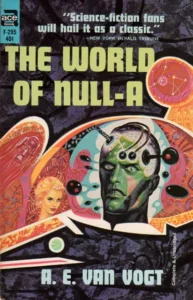
The history of this novel is interesting, it was published in the month that the first atomic bombs were dropped on Japan and finished a month after they surrendered. That means that the Canadian author was writing this novel during the events of World War II and at a time when the outcome was still in doubt. The novel I read now had been revised in both 1948 and slightly again in 1970 but it maintains the 40s pulp charm with Roboplanes and a weapon called the Vibrator.
AE Van Vogt’s theory that new ideas or twists must be introduced every 800 words excited and influenced Philip K. Dick, for the same reason that Damon Knight hated it. That essay is still available in his book of essays “In Search of Wonder.” While worth reading Knight’s arguments they feel like over-analyzed. I think Philip K. Dick’s response (in 1974) is important.
“Damon feels that it’s bad artistry when you build those funky universes where people fall through the floor. It’s like he’s viewing a story the way a building inspector would when he’s building your house. But reality really is a mess, and yet it’s exciting. The basic thing is, how frightened are you of chaos? And how happy are you with order? Van Vogt influenced me so much because he made me appreciate a mysterious chaotic quality in the universe which is not to be feared.”
It is the story of Gilbert Gosseyn (pronounced go sane) who wakes up in his second body on the eve of the Machine Games. This is a lawless month when players compete in various ways to earn a spot living on a Venus colony. That colony you see has grown into The Null-A system – a lawless utopia that soundeds like an anarchist activist’s idea of post-civil war Spain. The plot is complicated, something as a reader of PKD I am used to. The story on the surface looks to be like The Purge or Hunger Games but it goes into immortals and space opera later. There are wars with Galactic empires, massive AI’s, and lots of crazy weird elements.
“Here he was at long last, to participate in the games of the machine – the games which meant wealth and position for those partially successful, and a trip to Venus for the special group that won top honors.” (WONA, 2) The games replace elections and make the ethics of society more random. “What is all this games stuff, anyway? In a way, it’s easy enough to see what happens to winners who stay on Earth. They get all the juicy jobs; they become governors and such.” (WONA, 22)
The The President makes the political appointments more at the center of Solar Lottery. There is a game machine in PKD’s novel, represented by the spinning of a bottle by a Quizmaster who plays the game for the chance to become president “Remember what he planned for mankind? Think back why does the challenge process exist? The whole bottle system is to protect us; It elevates and deprives at random, chooses random individuals at random intervals. Nobody can gain power and hold it; Nobody knows what his status will be next year, next week. Nobody can plan to be a dictator; it comes and goes according to subatomic random particles. The challenge protects us from something else. That protects us from incompetence from fools and Mad Men. We’re completely safe: no despots and no crackpots.” (SL, 38)

It is hard when read side by side to think of PKD’s novel as original, something that would eventually become a hallmark of his work. No one before or after wrote novels like Do Androids Dream of Electric Sheep or Three Stigmata of Palmer Eldritch. His skill as a writer, was there right out of the gates, a major leap from Van Vogt, not with experience but natural ability.
The games in Null-A require skill and Solar Lottery is random. “The games require knowledge and skill integrated over a long period. During the last fifteen days, they require flexibility of understanding that only the keenest and most highly developed brains in the world hope to compete. (WONA, 23) This difference makes sense as a part of PKD’s characters’ working class put-upon status. “It represented his one chance out of 6 billion in the great lottery his fragile possibility of being twitched by the random motion of the bottle to the number one class position politically speaking he was back Thirty-three years, the P- card was coated at the moment of birth.” (SL, 2)
In Malzberg’s novel skill ultimately doesn’t matter because no one can defeat the game. “There is no game,” he says. He seems quite frantic although his movements are contained. There is no game, merely deceit. We never had a chance, not from the very outset of this. Your game is a lie, it is merely a means to keep us in place by giving the illusion of mobility.” (TG, 33) The 70s take on the same story – no one wins the game they simply play in loop and never escape.
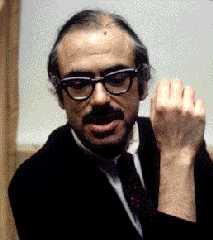 (Barry N. Malzberg)
(Barry N. Malzberg)
Both Van Vogt and PKD played with the unwinnable aspects of the game. In Null-A Gosseyn learns that forces from beyond Earth have made multiple copies of him and he has to worry if he is even the original or a copy. You can see themes that PKD would explore throughout his career of identity:, winning the games just puts him into a paranoid cycle. “Yes. I have had some false ideas planted in my mind. Were they put there with a purpose?” (WONA 34)
The quizmaster in Solar Lottery wins with a twist. You are president but you have a target on your back. “He was now the supreme power of the nine-planet system. He was a quizmaster, surrounded by a telepathic corps, with a vast army of war fleet and police force at his disposal. He was the unopposed administrator of the random bottle structure, the vast apparatus of classification, quizzes, lotteries, and training schools.” (SL, 28) The winner doesn’t win as they are entered into a reality TV survival competition. “A man’s coming here to kill me, publicly and in broad daylight, with the wholehearted approval of the system. Everyone in the world sitting and cheering him, propped up in front of their TV sets, watching and waiting for the results. The winner of this national sport how the hell am I supposed to feel?” (SL, 104)
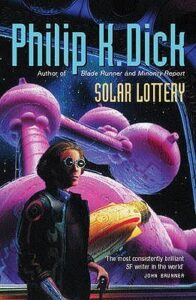
In Malzberg’s novel, there is no illusion of victory. The point of view character “Block is twenty-seven years old and his identity is beating the game. In only one way does Block claim that he is exceptional: he will beat the game. The fact that nobody has in forty-seven years of existence does not discomfit Block there is always a first time and besides he believes in the uniqueness of circumstance just because his obsession seems unlikely does not make it less truthful Block twenty-seven, will beat the game he will emerge from his difficult network and to triumph; He will pull from the dark lottery the one gleaming prize of connection his victory will humble people and may even have a devastating order upon the social order, of course, has been based for some time on the effective impossibility of the game being beaten.” (TG, 21)
The longer the novels get away from the idealistic era when the world was united in trying to defeat the fascist threat of the Second World War, the more radical each part of the trilogy feels. The reasons for the games become darker, and the methods more cynical. The experience of reading the three novels back-to-back-to-back as I did was a progression into darker worlds:
“We are men who would have been doomed to minor positions if we had accepted the rule of the machine and the philosophy of Null-A we are highly intelligent capable in every respect but we have certain ruthless qualities in our natures that would normally bar us from great success 99% of the world’s history…(WONA, 47)
“The theory of minimax – the M-game – was a kind of stoic withdrawal, a non-participation in the aimless swirl in which people struggled period the end game player never really committed himself; He risked nothing, gained nothing… and wasn’t overwhelmed he sought to hoard his pot and strove to outlast other players the end game player sat waiting for the game to end; And that was the best he could hope for.” (SL, 18)
“These games were evolved in 2212 as a formal response to the conditions which prevailed at the time; They were devised in the era of crushing anonymity as a means for people to get some control over their lives over the machines of technology and so on. We had a great deal of difficulty in achieving any kind of stasis in the culture, dysfunctional elements predominated, a dislocation which was severe and threatened the very fabric of society because people felt that they could not possibly equate their acts with meaningful outcomes and so on. Ohh, you would know a great deal about this if you had followed the pattern of study required of a games master, you would understand all this quite well but it’s necessary for me to very to go very quickly here period now the game, the game can be said, in 200 years since its evolution, to be the only construct which keeps society stable, provides a safety valve, provides the populace with the feeling that they can assume some control over their existence and can achieve the higher levels, the diminishing resources of the planet…” (TG, 108)
Null-A as a novel has the most pulp adventure feel of the three novels, the world is described as a peaceful law-abiding Earth of 2560. The only break in the peace is during the Games, which the President in the last quote blames for not being free to exploit his power. Solar Lottery flirts a bit more with commenting on culture, the games are connected to consumer culture, a reaction to abundance. “Burning Places” where over–manufactured goods were part of what led to the games. Solar Lottery’s society can function and expand to other worlds . In The Gamesman Earth is a brutal dystopia. The games keep society stable as the resources disappear.
The trilogy is about the rejection of traditional logic and explores societies built on numbers, the games serving as a safety value. Van Vogt sees fairness and computer programming being the key to making a society without Aristotelian logic. “The machine, in short, is self-sufficient and superlatively intelligent but it has limitations. These limitations were implanted from the beginning, and consist of three broadly based directives. It must operate the games fairly, within the framework of laws laid down long ago by the Institute of General Semantics. It must protect the development of Null -A in the broadest sense.” (WONA, 140-41)

PKD a decade later is writing at a time when game theory is being used to simulate and predict nuclear war. A time when Cold War fears had school children doing duck and cover drills. He was not just exploring the Aristotelian themes he was making the same point – that the machine was creating that balance. “The M-game places great emphasis on the Aristotelian golden mean.” (SL,33)
In The Gamesman, Malzberg is not interested in logic systems, but the games as a means of control. “The game, the idea of it, functions only as a safety valve, don’t you understand that? The few at the very top of the miserable society who control everything know that if people truly understood their position, the unfairness of it, they would be toppled by a revolution within minutes because they’re so outnumbered…” (TG, 59)
Think about the political differences of the editors who first bought these two novels and it reflects the finished works. Van Vogt was writing about Superman for his right-wing editor John W. Campbell, and PKD wrote from the working-class point of view for his leftie Futurian one-time communist Don Wollheim. Something Thomas Disch pointed out. “It is a bit of legerdemain calculated to give the guileless reader a sense that the book is about Something Important, a name to drop if not a whole idea. The difference is that in Van Vogt such hocus pocus is associated with the good guys; in Dick (as in real life) it is associated primarily with the bad guys.”
Malzberg’s characters are working to defeat the games directly in a way that neither Van Vogt nor PKD’s characters intended. The Games are challenged by the events of all three novels, but only Malzberg’s characters organize against it. Nothing else better highlights the difference between the times when they were written. They go from not questioning the system, and blaming the system to activeley attempting to overthrow it.
This is a fascinating trilogy. The three novels can and should be read on their own, but the power of them together is such a perfect and clear example of the conversation between generations. The World of Null-A is a flawed novel by today’s standards but you can’t read a genre novel that is almost 80 years old and not give it a certain amount of leeway. Considering when it is written it is delightfully weird. Solar Lottery is the first released novel by PKD and it doesn’t diminish his genius to point out how much it owes to Van Vogt. Malzberg’s dedication to PKD doesn’t include Van Vogt, and I don’t know if he was a direct fan of the Canadian, but it points to an interesting phenomenon. The sad reality is many writers and readers in this conversation in science fiction across the generations don’t even know who AE Van Vogt is. They just heard the conversation from Philip K. Dick.
We honor the history of the genre when we explore the roots of genre, and it makes us better readers and writers. The Games Machine trilogy is a great example and it is worth reading as a whole for that reason.


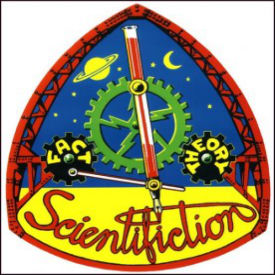

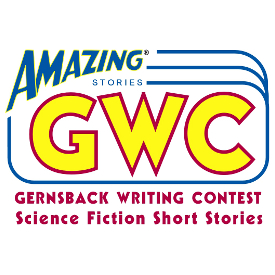
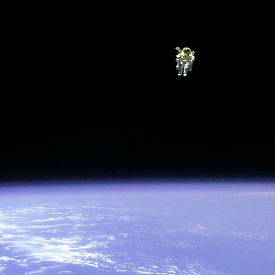


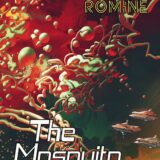


Recent Comments